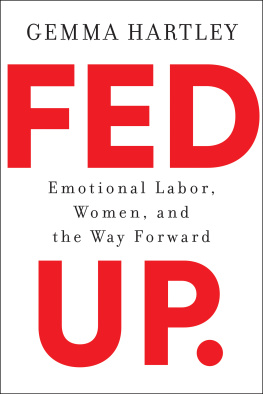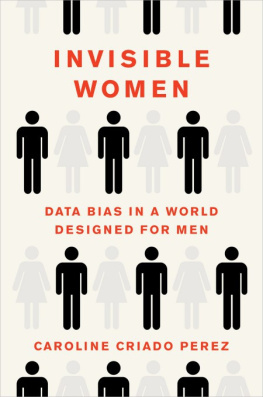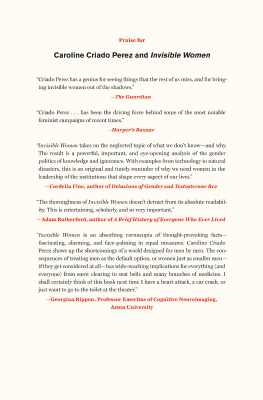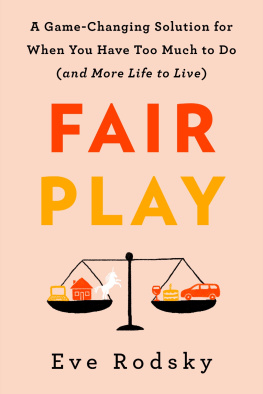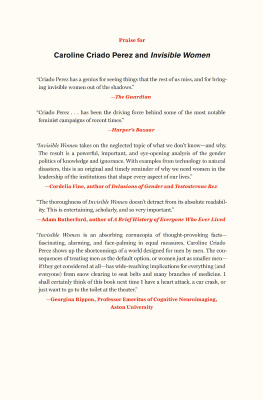We are brought back to the question of what the social carpet actually consists of and what it requires of those who are supposed to keep it beautiful.
ARLIE RUSSELL HOCHSCHILD
F or Mothers Day I asked for one thing: a housecleaning service. Bathrooms and floors specifically, windows if the extra expense was reasonable. The gift, for me, was not so much the cleaning itself but the fact that for once I would not be in charge of the household office work. I would not have to make calls, get multiple quotes, research and vet each service, arrange payment, and schedule the appointment. The real gift I wanted was to be relieved of the emotional labor of a single task that had been nagging at the back of my mind. The clean house would simply be a bonus.
My husband waited for me to change my mind to an easier gift than housecleaning, something he could one-click order on Amazon. Disappointed by my unwavering desire, the day before Mothers Day he called a single service, decided it was too expensive, and vowed to clean the bathrooms himself. He still gave me the choice, of course. He told me the high dollar amount for completing the cleaning services I requested (since I control the budget) and asked incredulously if I still wanted him to book it.
What I wanted was for him to ask friends on Facebook for a recommendation, call four or five more services, do the emotional labor I would have done if the job had fallen to me. I had wanted to hire out deep cleaning for a while, especially since my freelance work had picked up considerably. The reason I hadnt done it yet was part guilt over not doing my own housework, and an even larger part of not wanting to deal with the work of hiring a service. I knew exactly how exhausting it was going to be. Thats why I asked my husband to do it as a gift.
Instead, I was gifted a necklace for Mothers Day while my husband stole away to deep-clean the bathrooms, leaving me to care for our children as the rest of the house fell into total disarray.
In his mind, he was doing what I had most wantedgiving me sparkling bathrooms without me having to do it myself. Which is why he was frustrated when I ungratefully passed by, not looking at his handiwork as I put away his shoes, shirt, and socks that had been left on the floor. I stumbled over the large Rubbermaid storage tub sitting in the middle of our closet. My husband had taken it down from a high shelf days before, because it contained the gift bags and tissue paper necessary to wrap his mothers gift and mine. He had taken out what he needed, wrapped the gifts, and left the tub on the floor: an eyesore, an obstacle, and (at least for me) a source of endless ire. It impeded me every time I needed to toss clothes in the hamper or pick out something to wear. It was shoved, kicked, and rolled onto its side, but it wasnt put away. To put it back, I had to drag a kitchen chair into our closet so I could reach the shelf where it belonged.
All you have to do is ask me to put it back, he said, watching me struggle.
It was obvious that the box was in the way and needed to be put back. It would have been easy for him to just reach up and put it away, but instead he had stepped around it, willfully ignoring it for two days. It was up to me to tell him that he should put away something he had taken out in the first place.
Thats the point, I said, now in tears. I dont want to have to ask.
And therein lay the problem. It was a simple and obvious task that required minimal effort for him. So why hadnt he done it? Why did I always have to ask?
It was a question that led to a tear-filled fight as I tried to get my husband to grasp why it is exhausting to be the household manager who notices problems, delegates solutions, and has to ask in a singsong voice to get anyone to comply, how I find myself carrying all the domestic upkeep that relieves others of the mental load. I am the one who notices when things need to be done, and my options are limited. I either complete these tasks myself or delegate them out to others. If we are running low on milk, I put it on my grocery list or ask my husband to pick it up at the store, even if he was the one to use the last drop. Im the one who notices when the bathroom or kitchen or bedroom needs to be cleaned, and my attention to all the details often makes one task turn into twenty. I start taking socks to the laundry, then notice a toy that needs to be put away, which leads to tidying the playroom, and then a stray bowl needs to be put in the sink, so I do the dishes, and the cycle continues ad nauseam.
Housework isnt the only thing that becomes a drag. I am also the schedule keeper who makes appointments and knows what is on the calendar at all times. I am the person who has all the answers to where my husband left his keys, what time that wedding is and what type of dress code is necessary, do we have any orange juice left, where is that green sweater, when is so-and-sos birthday, and what are we having for dinner? I carry in my mind exhaustive lists of all types, not because I want to, but because I know no one else will. No one else will read the school handbook. No one else will plan what to bring to our friends potluck. No one else will lift a finger unless asked, because that is the way it has always been.
Yet asking, and asking in the right way, is an additional layer of labor. Delegating, in many situations, requires repeating requests, which is often perceived as nagging. Sometimes its simply not worth the effort of asking again and again, and continually asking in the right tone (and still risking being called a nag). So I do the task myself. Many mornings I bring my daughter her shoes and put them on her feet, not because she is incapable but because I do not want to ask her to put them on ten or more times before yelling that it is time to leave and no one has their shoes on. When I want my husband to clean up the yard, but I also want to keep the peace, I have to monitor my tone so it doesnt betray the resentment I feel, because he never notices tasks that need to be done without my reminders. I find myself curbing my own emotions to cater to those around me, simply to keep our life running smoothly and fight-free. Otherwise, I do all the work myself. My kids certainly dont have to make this choice, and neither does my husband. Its my job. It always has been.
And it seems no matter how much I do, there is always something more on the horizon. It is a kind of work that is far more time consuming than the tasks in which it culminates, but which goes largely unnoticed by those around me. Its a feeling that is all too familiar to many women. While reading Tiffany Dufus Drop the Ball, I bristled with recognition as she recounted her postbaby resentment toward her husband. Both of us worked full-time outside the home, but inside the home, I worked harder, Dufu writes. And, maddeningly, he seemed unaware of half the things I did to keep our household running smoothly. In other words, not only did he do less, he didnt appreciate that I did more. Yet even in more equitable relationships where we are evenly distributing the physical labor of domestic work and childcare, it still feels like women are doing more... because they are. Even when there is a fifty-fifty split in domestic labor and childcare, we arent quantifying the emotional labor that goes into these tasks. Often its easy to miss the more that we do, because much of that more is invisible. At the heart of so much emotional labor is the mental load that goes into ensuring everything gets done. For every task that produces a physically visible result, there are many mental steps behind it that remain unseen. Those steps are largely noticed, tracked, and executed by women.

